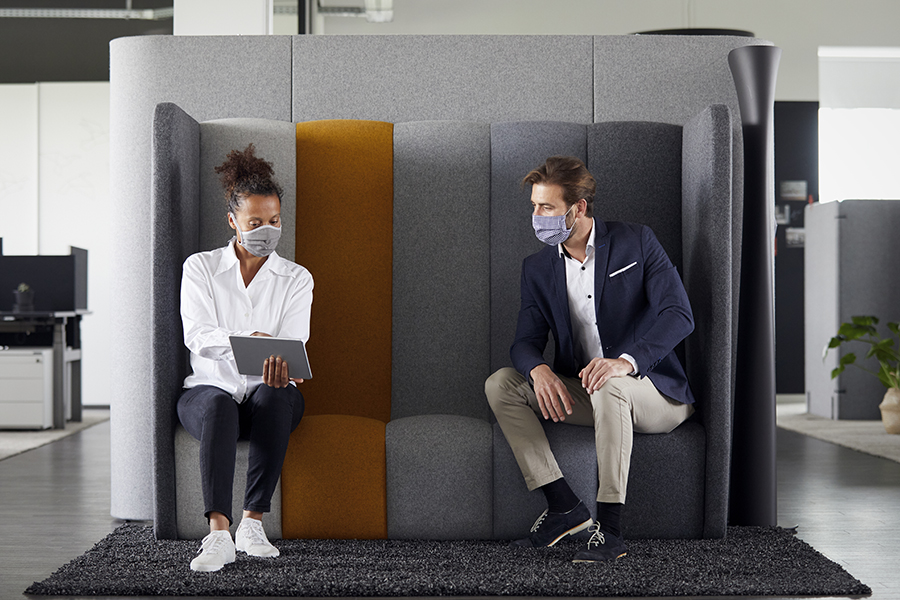This pandemic is an opportunity for us to have a forthright conversation about making our workplaces more resilient. Here are a dozen ways businesses can create healthier employees and sustainable companies based on the science of resilience.
1. Structure
Offer employees just enough structure to make their workplaces predictable. That means whenever possible, offering secure employment, solid supervision, and clear expectations concerning workload. People cope better with stress during natural disasters, pandemics, and economic crises because they know what they are expected to do and have the support to do it.
Real Leaders Impact Awards, The World’s Top Impact Companies: APPLY NOW
2. Responsibility
Insist employees share responsibility for some part of the business. While mission statements and meaningful work are ways to make a workforce resilient and productive, making people feel accountable for what they do and giving them responsibilities creates a more practical approach to motivating a workforce to do their jobs during challenging times.
3. Relationships
Invest energy in building relationships with staff and between staff. While there will always be competition, creating opportunities for people to support each other in the workplace builds the social networks necessary for Resilience. Whether that’s celebrating people’s birthdays, the annual summer BBQ, or peer mentorship, every sustainable relationship on the job decreases staff turnover and increases opportunities for innovation.
4. Networks
Link your business with other businesses in your community. Networks of collaboration may conjure images of Elks meetings and strange dress codes. Still, social cohesion ensures a united front during a crisis when no one business is able to cope.
5. Identity
Take this opportunity to strengthen the parts of your corporate identity that work while also exploring new identities for your business. What talents do your employees have, and what capacity do you have for production that could be used differently as the world changes? Distilleries found a niche as producers of hand sanitizer, and airlines have turned passenger jets into cargo haulers. My work with communities dependent on the oil and gas industry is helping them to find ways to diversify their economies and buffer them against emerging green technologies.
6. Control
Take control of whatever you can control. A small business on a downtown street may not be able to compete with the box stores in the suburbs, but it can convince the city council to rezone the community to encourage denser housing and an urban landscape preferred by new urbanists who want chic libraries and public transit. No matter the size of your business, there is always something you can control and someplace where your efforts will be rewarded with change.
7. Citizenship
Be a good corporate citizen. My work on corporate social responsibility campaigns with large multinationals has convinced me that a triple P approach (people, profits, planet) is good business and good for employees. People like to see their workplaces become relevant to their communities, whether that is through fundraisers or meeting people’s needs at a meaningful scale. There is an almost spiritual quality to being a part of a community that needs its businesses to thrive.
8. Rights
Protect your rights as a business and the rights of your employees. Whether that means asking for help from your government or ensuring employees are treated fairly, we are more resilient when we insist on transparent rules and equal access to justice.
9. Needs
Look after everyone’s basic needs. Minimum wage laws, access to zero-deductible health care, occupational health and safety rules, paid sick leave, and maternity benefits do not decrease overall productivity if they produce a healthier, more stable workforce that cuts training costs and prevents workers from making each other sick. Meeting employee needs can also mean changing where people work and when. If people can work from home part-time, or office hours can be staggered to avoid the morning congestion on the highways, consider the real value to employees of these small modifications to business as usual.
10. Health
Take care of everyone’s physical and mental health in the workplace. That could mean stand-up desks and a vending machine selling healthy food, or subsidized gym memberships. It can also mean encouraging employees to take all their vacation to ensure maximum performance. Pushing employees to the point of exhaustion undermines a business’ long-term Resilience.
11. Finances
When possible, stabilize your finances. Take risks but ensure a secure foundation for the next big crisis.
12. Positive thinking
Be positive and avoid catastrophic thinking. Even during a crisis, there are still things to be grateful for. Encourage moments of appreciative inquiry during staff meetings to celebrate what has gone well even during the most difficult of times.
Resilience is not something just inside individuals. It is the result of how well our environments provide the resources we need to cope with a crisis. The better business is at making itself and its employees’ well being sustainable, the better the business will survive the next big challenge.




































